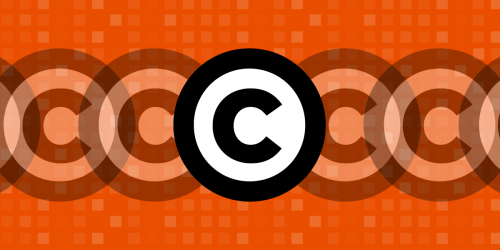 We're taking part in Copyright Week, a series of actions and discussions supporting key principles that should guide copyright policy. Every day this week, various groups are taking on different elements of the law, and addressing what's at stake, and what we need to do to make sure that copyright promotes creativity and innovation.
We're taking part in Copyright Week, a series of actions and discussions supporting key principles that should guide copyright policy. Every day this week, various groups are taking on different elements of the law, and addressing what's at stake, and what we need to do to make sure that copyright promotes creativity and innovation.
From phones to cars to refrigerators to farm equipment, software is helping our stuff work better and smarter. But those features come at a high hidden cost: the rapid erosion of ownership. Why does that matter? Because when it comes to digital products, owners have rights. Renters on the other hand, have only permission.
The source of the problem is simple: copyright. You may own your device, but your use of the software in it is usually governed by the terms of an End-User License Agreement (or EULA). And that license agreement is likely to restrict your ability to tinker with your stuff. Typical clauses forbid reverse-engineering (e.g., figuring out how the software works so you can adapt it), transfer (e.g., giving it to a friend or selling it on the secondary market), and even using “unauthorized” repair services at all.
Further complication: the software may be saddled with digital locks (aka Digital Rights Management or DRM) supposedly designed to prevent unauthorized copying. And breaking those locks, even to do something simple and otherwise legal like tinkering with or fixing your own devices, could mean breaking the law, thanks to Section 1201 of the Digital Millennium Copyright Act.
And then there’s repair-manual lockdown, which happens when manufacturers refuse to publish crucial repair information (including the manuals themselves, but also things like diagnostic codes for cars)—and then threaten to sue anyone else who tries to do so with a lawsuit for copyright infringement.
The end result: fair uses are impeded, users are disempowered and trained to go hat in hand to the Apple store just to change a battery (rather than doing it themselves). Users are forced to make do with DRM-crippled devices that are fundamentally defective and compromise our security. Medical clinics must waste scarce resources on expensive repair contracts rather than patient care. Independent repair shops are driven out of business. And the electronic waste piles up, as users discard their devices rather then fixing them or donating them for re-use.
Some copyright holders insist there isn’t really a problem here. People don’t want to be owners, they claim, because all they really care about is “access,” and more and more content is being made “accessible” in more and more ways. Sure, you might have to pay a premium for the privilege of, say, watching the movie you “bought” on more than one device, but no one’s forcing you to do it.
What’s wrong with that story? First, most people have no idea that all they bought was a license. After all, the button they clicked on Amazon said “Buy,” not “Rent.” Little do they know that Amazon has the right to (for example) remotely delete books from their library, without notice and at Amazon’s whim.
Second, many users don’t just want to “access” content, they want to comment on it and use it in new and different contexts. They want to view it or listen to it via devices and services that don't necessarily have the blessing of the copyright holder. They want to lend a book to a friend, or make a copy on the laptop they are bringing overseas. They want to resell the music and books they are bored with, and use the money to buy new material. Some, like librarians, want to make copies in order to preserve, protect and share our cultural commons. EULAs and DRM inhibit this normal activity.
Third, “access” does nothing to address the problems that arise when it comes to the Internet of Things. If my car breaks down, I want to be able to take it the mechanic I trust, not the one General Motors hand-picks for me. I also don’t want my trusted mechanic driven out of business because she can’t afford to pay licensing fees for the diagnostic codes she needs to do her job.
Or maybe I want to tinker with the software to make the car run better, or test it for malware. As author Mr. Jalopy succinctly put it, “If you can’t open it, you don’t own it.” And if you don’t own it, it may pwn you. If so, you can thank EULAs and DRM (backed by Section 1201).
EFF, along with many other folks, is working to get exemptions for some of these restrictions. But it’s a deeply flawed process. What we need is fundamental change. As it happens, there’s been a lot of talk in Washington DC lately about copyright reform. If lawmakers are serious fixing copyright, they should start by repealing Section 1201. They should also limit the reach of EULAs so that the “Internet of Things” does not become the “Internet of Things I Think I Own But Can’t Control.”
We are a nation of tinkerers, inventors, and makers. A copyright system that inhibits that fundamental freedom to tinker and to innovate is a broken system. It’s time to fix it.








